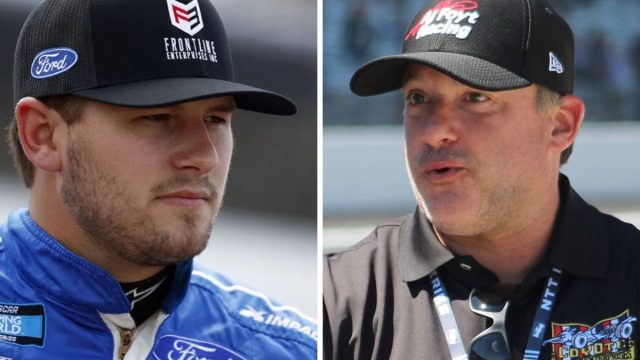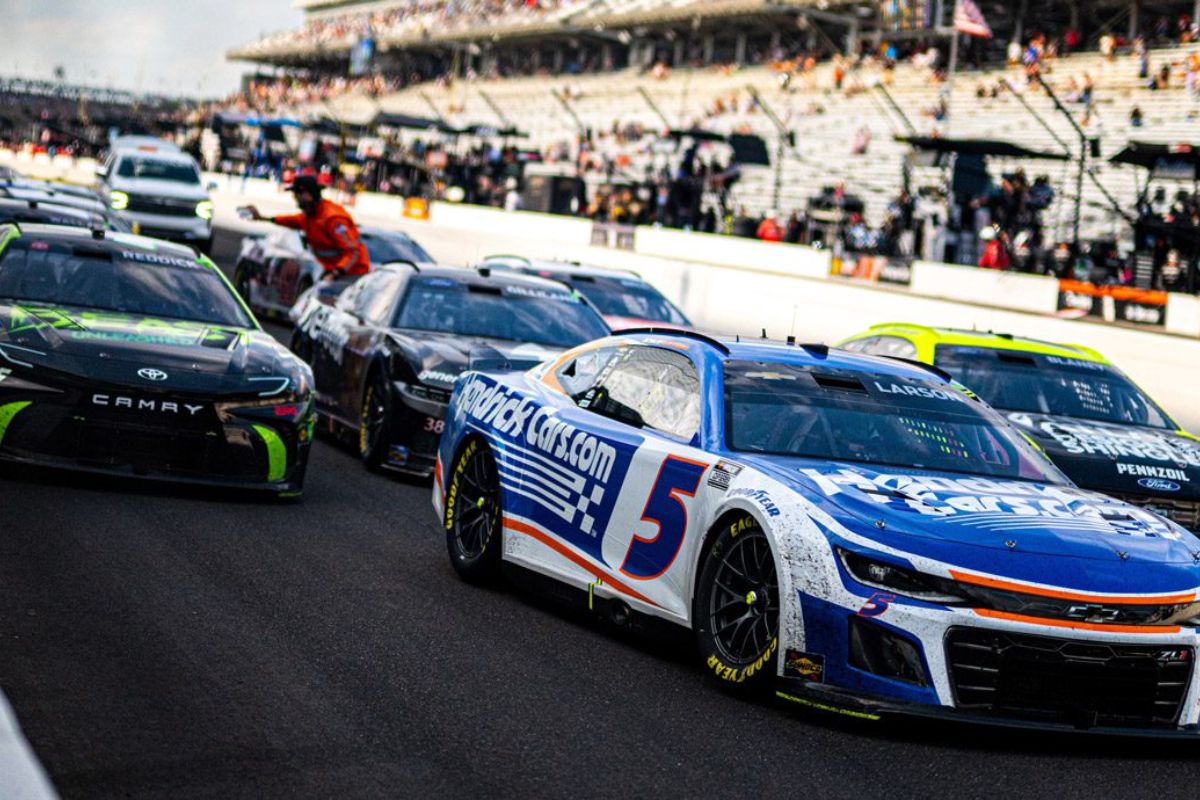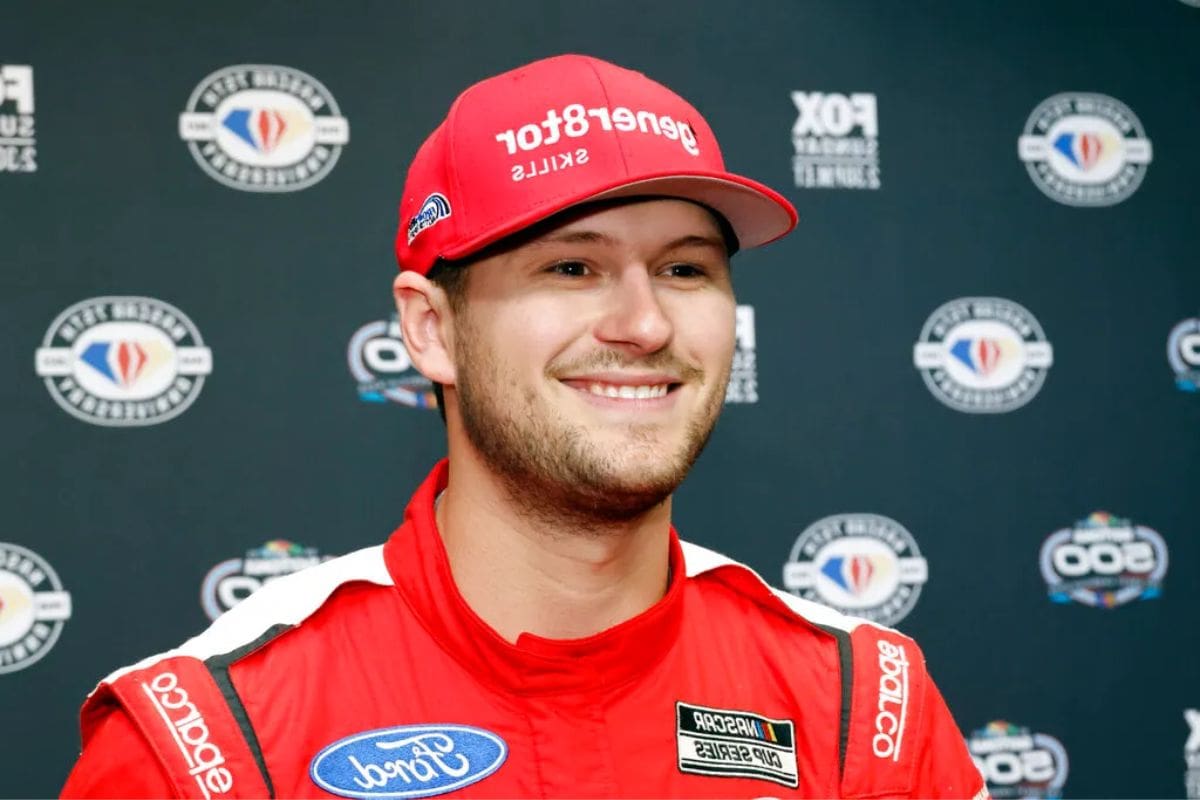Todd Gilliland Pushes FRM to Capitalize on Tony Stewart: In the wake of Tony Stewart‘s exit from NASCAR, Todd Gilliland is seizing a tactical moment for Front Row Motorsports (FRM) to redefine its competitive landscape. By pursuing a secondary charter and eyeing talent like Noah Gragson, Gilliland’s approach signals a commitment to not only improve team performance but also to innovate within the sport. His focus on building a cohesive, skilled team and embracing technological advancements raises questions about FRM’s potential path. What implications could these shifts have for the broader NASCAR environment and the team’s future success?
Key Highlights
- Todd Gilliland aims to enhance FRM’s competitiveness by acquiring a third charter in light of Tony Stewart’s exit from NASCAR.
- The addition of Noah Gragson signifies FRM’s commitment to developing talented drivers and strengthening their lineup.
- Gilliland emphasizes the importance of having the right people in key positions to drive FRM’s growth and success.
- FRM seeks to capitalize on SHR’s departure by optimizing performance and positioning itself as a consistent contender in NASCAR.
Overview of NASCAR Team Dynamics
Steering the complex dynamics of NASCAR teams requires a blend of tactical vision, robust leadership, and adaptability to the constantly changing landscape of motorsport competition.
The shifting terrain of NASCAR is exemplified by the contrasting trajectories of established teams like Stewart Haas Racing (SHR) and emerging entities such as Front Row Motorsports (FRM). The departure of a powerhouse like SHR, after a successful decade, opens avenues for growth and competition among less established teams.
NASCAR team dynamics are fundamentally influenced by factors such as resource allocation, talent acquisition, and calculated partnerships. Successful teams capitalize on their history and industry relationships to establish competitive advantages, while newer teams often face the challenge of building infrastructure and securing sponsorships. The evolution from a single-car to a multi-car operation, as evidenced by FRM’s expansion, signifies a significant shift in capabilities and market presence.
Moreover, leadership plays an essential role in steering these dynamics. Leaders like Tony Stewart have illustrated the importance of resilience and calculated foresight in overcoming initial setbacks. The ability to cultivate talent and foster a winning culture is imperative for any team aspiring to ascend the ranks of NASCAR.
As teams adapt to market changes, they must also remain agile in their approaches to technology and driver development, ensuring they can compete effectively in an increasingly competitive arena.
Todd Gilliland’s Strategic Vision for FRM
In view of the recent shifts within NASCAR, Todd Gilliland’s tactical vision for Front Row Motorsports (FRM) reflects a determined effort to seize new opportunities and improve the team’s competitive standing in the wake of Tony Stewart’s departure from the sport. With the landscape changing, Gilliland recognizes the potential to enhance FRM into a more formidable contender on the track.
- Acquisition of a Third Charter: This noteworthy move aims to expand the team’s footprint in NASCAR, enabling FRM to field additional competitive entries and increase their presence in races.
- Bringing on Noah Gragson: The incorporation of Gragson, a rising talent, highlights FRM’s commitment to nurturing skilled drivers who can lead the team to success.
- Leveraging Gilliland’s Racing Pedigree: As a third-generation driver with a rich history in the sport, Gilliland’s experience is invaluable. His impressive track record, including four top-10 finishes this season, positions him as a linchpin in the team’s aspirations.
- Capitalizing on Competitive Opportunities: With Stewart’s exit, Gilliland sees an opening for FRM to assert itself among leading teams, urging the squad to optimize their performance and strategies.
Gilliland’s Bold Statement on Team Building
Todd Gilliland’s assertion regarding the importance of assembling a skilled team highlights his tactical approach to elevating Front Row Motorsports in the competitive NASCAR landscape. By emphasizing the need for ‘the right people in the right positions,’ Gilliland demonstrates a keen understanding of the critical role that human capital plays in achieving performance excellence. His remarks, articulated on the Door Bumper Clear podcast, emphasize the urgency and potential that exists within the current shifts in the NASCAR ecosystem, particularly with the changes at Stuart-Haas Racing (SHR).
“You know, Jerry Frees and our management group at Front Row—we have to get the right people. There’s obviously a lot of good people out there right now with, you know, Stuart-Haas changing their whole thing, and it’s just about getting the right people in the right positions and obviously getting the right drivers. So, yeah, we’ll see, but I’m super excited about it.” – Todd
Gilliland’s perspective is not merely aspirational; it reflects a strategic imperative. The prospect of attracting top-tier talent from established organizations, especially those with a championship pedigree, could serve as a catalyst for FRM’s growth. For instance, the mention of Rodney Childers as a “hottest commodity” post-SHR restructuring exemplifies the competitive advantage a skilled crew chief can provide.
Additionally, Gilliland’s excitement about the potential influx of talent indicates a proactive mindset, which is fundamental for any organization aiming to ascend in a fiercely competitive arena. As NASCAR evolves, the ability to harness the strengths of experienced professionals will likely dictate the direction of teams.
Gilliland’s Experience with Team Changes
Navigating the complexities of team dynamics, Gilliland faced considerable challenges in 2023 as he balanced his commitments between Front Row Motorsports (FRM) and Rick Ware Racing. This dual engagement tested his adaptability and mental fortitude, particularly when it came to steering through the intricacies of team changes and interpersonal relationships.
“It was a really tough situation. Me and Zane were friends, and we still are great friends. It’s just funny, looking back you’re always going to have these type of situations. Become friends with the people you’re racing. It wasn’t between me and him, it still isn’t. Racing deal is a business. I would say that was the toughest part. Just kind of absorbing the news of not going to race these six races.” -todd
Despite Zane Smith taking over his car for several races, Gilliland’s professionalism shone through, showcasing his commitment to the sport.
- Friendship vs. Professionalism: Maintaining a friendship with Zane Smith while competing against him required emotional intelligence and a strong commitment to professionalism.
- Adapting to Uncertainty: The unexpected nature of team shifts demanded that Gilliland remain flexible and resilient, adjusting to new dynamics without compromising his performance.
- Emotional Resilience: Gilliland’s ability to absorb the disappointment of not racing for six events without losing confidence speaks to his mental strength.
- Business Perspective: Recognizing that racing is ultimately a business helped Gilliland manage personal feelings, framing the situation within a professional context.
Personal Reflection and Future Prospects
Reflecting on the challenges faced during the previous season, Gilliland’s path through team changes has fostered a deep sense of introspection regarding his career path and aspirations within NASCAR. The shift between teams has prompted him to ponder whether returning to the Xfinity Series or Truck Series to secure extra victories might be necessary for his growth. This contemplation demonstrates a critical moment in his career where he weighs the importance of experience against the urgency for competitive success.
“Do I need to go back and run the Xfinity Series or Truck Series again and win more races. It was definitely kind of a time to reflect or guess.” -todd
Gilliland’s ability to balance friendships with the demands of competitive racing speaks volumes about his maturity and sportsmanship. During his time with Front Row Motorsports (FRM), he recognized that he was not entirely free to pursue his ambitions, as commitments with Rick Ware Racing occupied his weekends. However, these experiences also allowed him to broaden his network and gain valuable insights from new acquaintances, reinforcing the notion that personal development is integral to professional growth.
The prospect of future success hinges on Gilliland’s zeal for learning and adaptability. He acknowledges that this season is merely the beginning of a much longer expedition, emphasizing that mastery in NASCAR is achieved through resilience and a steadfast commitment to improvement.
News in Brief: Todd Gilliland Pushes FRM to Capitalize on Tony Stewart
Todd Gilliland’s tactical initiatives for Front Row Motorsports position the organization to thrive in the wake of Tony Stewart’s NASCAR departure.
By pursuing a tertiary charter and attracting talented drivers, FRM is poised for growth and improved competitiveness.
Emphasizing the importance of assembling a skilled team and leveraging technological advancements, Gilliland’s vision signals a revolutionary period, setting the stage for consistent rivalry in the dynamic landscape of NASCAR.
ALSO READ: Todd Gilliland Praises Noah Gragson: Highlights His Key Role in FRM’s NASCAR Ambitions



